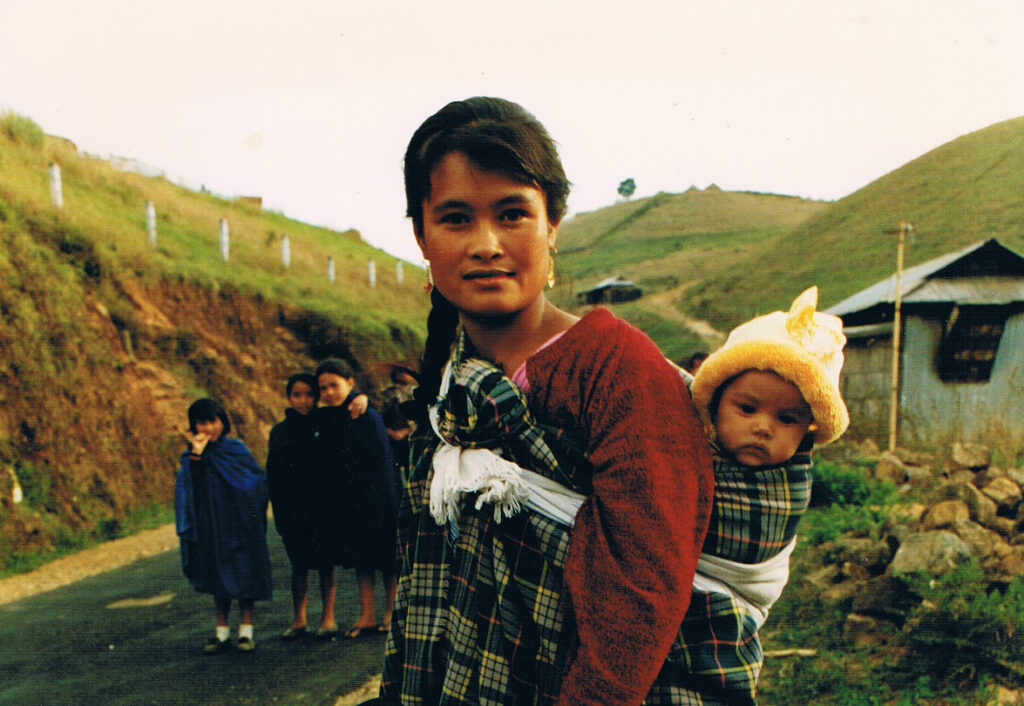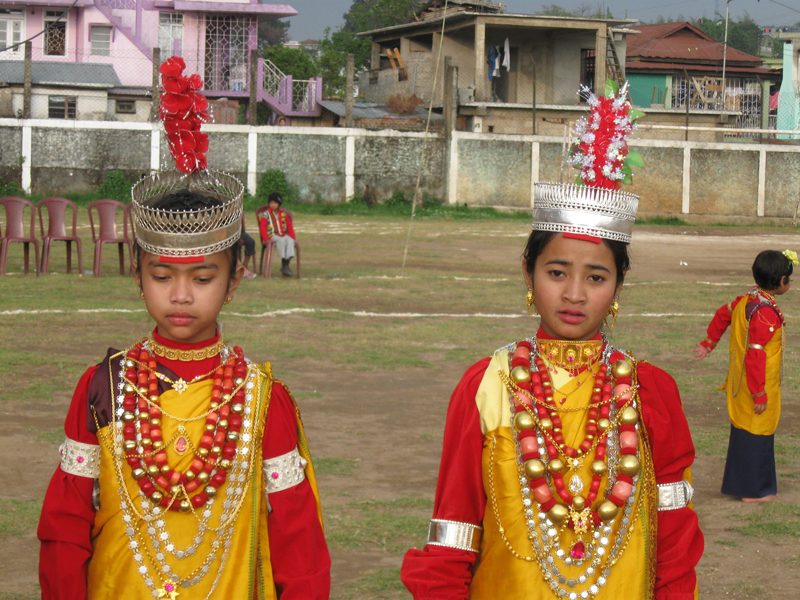In conversation with a woman from a matrilineal society
Author: Illin Masar
Illin Masar belongs to the indigenous Khasi people – derived from the proper name Ki Khasi, “Those born of a woman” – who form a matrilineal society. In this society, the clan, one’s own relatives and the relationships among each other are elementary. In the following conversation, we explore the questions of what roles certain family members hold, how the relationship between women and men is formed, and how customs and traditions are changing in the 21st century.
Tattva Viveka: Thank you very much for agreeing to do this interview with us. We are already very excited.
Illin: It’s my pleasure to be able to contribute to this.
TV: First, we’d like you to tell us a little bit about yourself: What is your marital status and how old are you? What is your profession? Do you have children?
Illin: My name is Illin Masar, I am widowed and 58 years old. I have five children, two daughters and three sons. My husband passed away 20 years ago. Since then, I have been a single mother and live in my own home. I used to work as a government contractor. One of my jobs was to repair houses. But for the past five years, I have been unemployed. My youngest son is working and taking care of me right now. My other four children are already married, but he, the youngest, is still single. He works in the Khasi Hills autonomous district council and has a master’s degree in computer applications.
TV: Do you live near your family members?
Illin: Yes, we live on a big property and right next to me lives my sister. I am the oldest. At some point the land was divided and each got her own plot, so myself, my middle sister and my youngest sister. There are three of us here. My cousins also live nearby.
 In conversation with a woman from a matrilineal society.
In conversation with a woman from a matrilineal society.
TV: So you’re not alone.
Illin: No! I am not alone because my cousins, the daughters and sons of my aunt, my mother’s older sister, also live near me. We are one big family.
RELIGION AND TRADITION WITH THE KHASI
TV: Many Khasi convert to Christianity. Are you a Christian or do you live the traditional Khasi faith?
Illin: I live in the traditional Khasi faith, but not strictly traditional. I don’t attend religious events that often. As in the “Seng Khasi” movement, believers should actually follow their religious duties regularly. But I follow the Khasi tradition and have not converted.
TV: Is the traditional way of life changing a lot at the moment?
Illin: It’s difficult to say. The customs are not changing, but the people are, through education, for example. Some are also influenced by the media, such as television and cell phones.
 The family is at the center
The family is at the center
TV: This connection to other countries and other people changes the view of customs?
Illin: It depends on the family. The family will always guide their children. Some children are different from others, but the tradition is still very present, and our connection to our traditions is strong. Even if many Khasi are now Christians, when they get married and have children, they have to do the same as we Khasi do.
TV: We’ve already talked about Khasi culture. How would you describe the society and culture?
Illin:
I think our culture is a good culture because we are connected to each other.
Especially with our own clan, our own family. Because many families, as we have seen in other countries, are no longer united. But we are.
We share, we fight, but we are not separated from each other. We always stick together.
When there is conflict, we know very early that something is wrong, and then we talk about it. We say it in good words. And we always think positively, because we have our clan. For example, when we meet a stranger, the first thing we do is ask about the clan. That way we can find out if we are from the same clan, that is, if we are related. We cannot marry within our own clan. That is a taboo. That’s a very special thing, isn’t it?
The interview was conducted by Alice Deubzer and Ronald Engert.
The Khasi – proper name Ki Khasi (“Those Born of a Woman”) or Ki Khun U Hynniewtrep (“The Children of the Seven Huts”) – are an indigenous people in northeastern India with over 1.4 million members in the small state of Meghalaya in the foothills of the Himalayas. They make up about half of the total population there. About 35,000 Khasi live in the neighboring state of Assam and about 100,000 in Bangladesh, which borders to the south. The Khasi form a matrilineal society through matrilineal lines, in which descent, surname and succession are derived only from the mother, not the father. These relationships are enshrined in the Meghalaya constitution, which guarantees them special rights of protection and self-government as a “Scheduled Tribes” community. According to Khasi tradition, ownership of land is only in the hands of women; it ensures social and economic independence and security for mothers and their extended families. Men belong to their mother’s extended family, inherit the family name and clan affiliation from her, and contribute to her maintenance; they are part of the solidarity community but usually cannot inherit land. After marriage, the husband usually moves in with his wife and her mother (matrilocal order of residence); his children will belong to their extended family. The wife’s brother is considered her protector and advisor and will traditionally take care of her children as a social father (avuncular of the mother’s brother).
 About the author
About the author
Illin Maser lives in northeast India in Shillong, Meghalaya, and is part of the indigenous Khasi people, who form a matrilineal society. She is the eldest daughter of her family, 58 years old and widowed.
This article appeared originally on the German Homepage of Tattva Viveka: Die Familie steht im Zentrum




